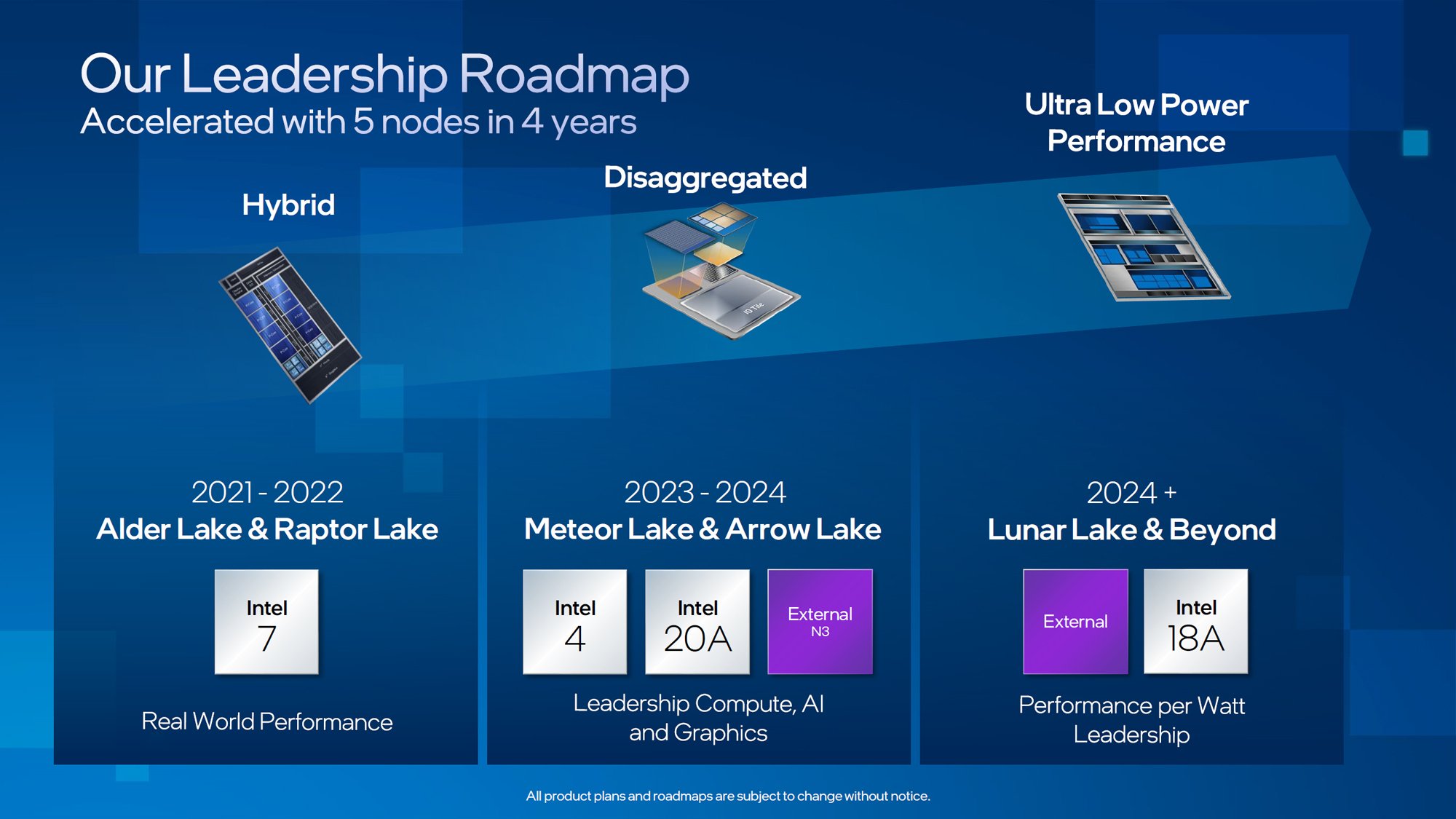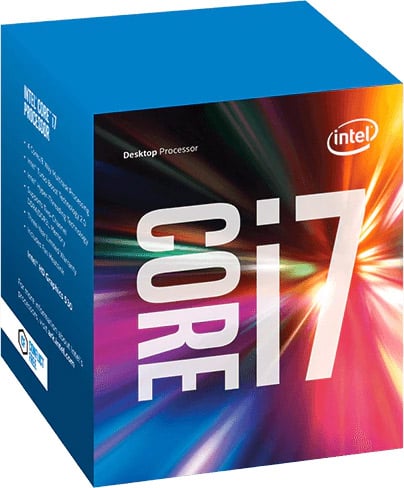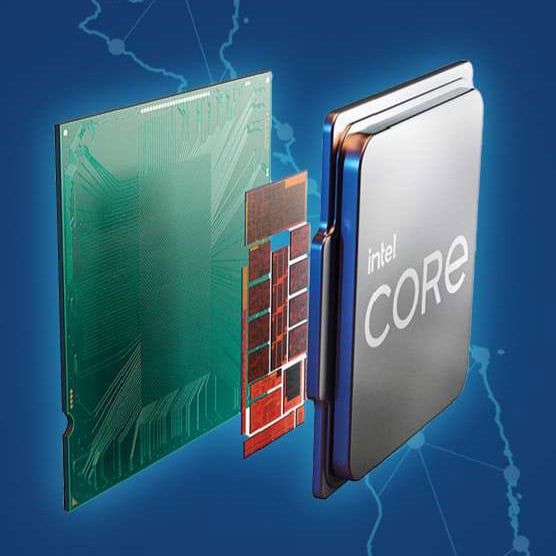
Intel Core i7-14700K vs Intel Core i7-13700K
Last updated:
CPU comparison with benchmarks

|
 |

|
| Intel Core i7-14700K | Intel Core i7-13700K | |
CPU comparisonIntel Core i7-14700K or Intel Core i7-13700K - which processor is faster? In this comparison we look at the differences and analyze which of these two CPUs is better. We compare the technical data and benchmark results.
The Intel Core i7-14700K has 20 cores with 28 threads and clocks with a maximum frequency of 5.60 GHz. Up to 192 GB of memory is supported in 2 memory channels. The Intel Core i7-14700K was released in Q4/2023. The Intel Core i7-13700K has 16 cores with 24 threads and clocks with a maximum frequency of 5.40 GHz. The CPU supports up to 192 GB of memory in 2 memory channels. The Intel Core i7-13700K was released in Q4/2022. |
||
| Intel Core i7 (298) | Family | Intel Core i7 (298) |
| Intel Core i 14000 (23) | CPU group | Intel Core i 13000 (17) |
| 14 | Generation | 13 |
| Raptor Lake S Refresh | Architecture | Raptor Lake S |
| Desktop / Server | Segment | Desktop / Server |
| Intel Core i7-13700K | Predecessor | Intel Core i7-12700K |
| -- | Successor | Intel Core i7-14700K |
|
|
||
CPU Cores and Base FrequencyThe Intel Core i7-14700K has 20 CPU cores and can calculate 28 threads in parallel. The clock frequency of the Intel Core i7-14700K is 3.40 GHz (5.60 GHz) while the Intel Core i7-13700K has 16 CPU cores and 24 threads can calculate simultaneously. The clock frequency of the Intel Core i7-13700K is at 3.40 GHz (5.40 GHz). |
||
| Intel Core i7-14700K | Characteristic | Intel Core i7-13700K |
| 20 | Cores | 16 |
| 28 | Threads | 24 |
| hybrid (big.LITTLE) | Core architecture | hybrid (big.LITTLE) |
| Yes | Hyperthreading | Yes |
| Yes | Overclocking ? | Yes |
| 3.40 GHz (5.60 GHz) 8x Raptor Cove |
A-Core | 3.40 GHz (5.40 GHz) 8x Raptor Cove |
| 2.50 GHz (4.30 GHz) 12x Gracemont |
B-Core | 2.50 GHz (4.20 GHz) 8x Gracemont |
Internal GraphicsThe Intel Core i7-14700K or Intel Core i7-13700K has integrated graphics, called iGPU for short. The iGPU uses the system's main memory as graphics memory and sits on the processor's die. |
||
| Intel UHD Graphics 770 | GPU | Intel UHD Graphics 770 |
| 0.30 GHz | GPU frequency | 0.30 GHz |
| 1.60 GHz | GPU (Turbo) | 1.60 GHz |
| 11 | GPU Generation | 11 |
| 10 nm | Technology | 10 nm |
| 3 | Max. displays | 3 |
| 32 | Compute units | 32 |
| 256 | Shader | 256 |
| No | Hardware Raytracing | No |
| No | Frame Generation | No |
| 64 GB | Max. GPU Memory | 64 GB |
| 12 | DirectX Version | 12 |
Hardware codec supportA photo or video codec that is accelerated in hardware can greatly accelerate the working speed of a processor and extend the battery life of notebooks or smartphones when playing videos. |
||
| Intel UHD Graphics 770 | GPU | Intel UHD Graphics 770 |
| Decode / Encode | Codec h265 / HEVC (8 bit) | Decode / Encode |
| Decode / Encode | Codec h265 / HEVC (10 bit) | Decode / Encode |
| Decode / Encode | Codec h264 | Decode / Encode |
| Decode / Encode | Codec VP9 | Decode / Encode |
| Decode / Encode | Codec VP8 | Decode / Encode |
| Decode | Codec AV1 | Decode |
| Decode / Encode | Codec AVC | Decode / Encode |
| Decode | Codec VC-1 | Decode |
| Decode / Encode | Codec JPEG | Decode / Encode |
Memory & PCIeThe Intel Core i7-14700K can use up to 192 GB of memory in 2 memory channels. The maximum memory bandwidth is 89.6 GB/s. The Intel Core i7-13700K supports up to 192 GB of memory in 2 memory channels and achieves a memory bandwidth of up to 89.6 GB/s. |
||
| Intel Core i7-14700K | Characteristic | Intel Core i7-13700K |
| DDR5-5600, DDR4-3200 | Memory | DDR5-5600, DDR4-3200 |
| 192 GB | Max. Memory | 192 GB |
| 2 (Dual Channel) | Memory channels | 2 (Dual Channel) |
| 89.6 GB/s | Max. Bandwidth | 89.6 GB/s |
| Yes | ECC | Yes |
| 28.00 MB | L2 Cache | 24.00 MB |
| 33.00 MB | L3 Cache | 30.00 MB |
| 5.0 | PCIe version | 5.0 |
| 20 | PCIe lanes | 20 |
| 78.8 GB/s | PCIe Bandwidth | 78.8 GB/s |
Thermal ManagementThe thermal design power (TDP for short) of the Intel Core i7-14700K is 125 W, while the Intel Core i7-13700K has a TDP of 125 W. The TDP specifies the necessary cooling solution that is required to cool the processor sufficiently. |
||
| Intel Core i7-14700K | Characteristic | Intel Core i7-13700K |
| 125 W | TDP (PL1 / PBP) | 125 W |
| 253 W | TDP (PL2) | 253 W |
| -- | TDP up | -- |
| -- | TDP down | -- |
| 100 °C | Tjunction max. | 100 °C |
Technical detailsThe Intel Core i7-14700K is manufactured in 10 nm and has 61.00 MB cache. The Intel Core i7-13700K is manufactured in 10 nm and has a 54.00 MB cache. |
||
| Intel Core i7-14700K | Characteristic | Intel Core i7-13700K |
| 10 nm | Technology | 10 nm |
| Monolithic | Chip design | Monolithic |
| x86-64 (64 bit) | Instruction set (ISA) | x86-64 (64 bit) |
| SSE4.1, SSE4.2, AVX2, AVX2+ | ISA extensions | SSE4.1, SSE4.2, AVX2, AVX2+ |
| LGA 1700 | Socket | LGA 1700 |
| VT-x, VT-x EPT, VT-d | Virtualization | VT-x, VT-x EPT, VT-d |
| Yes | AES-NI | Yes |
| Windows 10, Windows 11, Linux | Operating systems | Windows 10, Windows 11, Linux |
| Q4/2023 | Release date | Q4/2022 |
| -- | Release price | 409 $ |
| show more data | show more data | |
Rate these processors
Average performance in benchmarks
⌀ Single core performance in 4 CPU benchmarks
⌀ Multi core performance in 5 CPU benchmarks
Cinebench 2024 (Single-Core)
The Cinebench 2024 benchmark is based on the Redshift rendering engine, which is also used in Maxon's 3D program Cinema 4D. The benchmark runs are each 10 minutes long to test whether the processor is limited by its heat generation.
|
|
Intel Core i7-14700K
20C 28T @ 5.60 GHz |
||
|
|
Intel Core i7-13700K
16C 24T @ 5.40 GHz |
||
Cinebench 2024 (Multi-Core)
The Multi-Core test of the Cinebench 2024 benchmark uses all cpu cores to render using the Redshift rendering engine, which is also used in Maxons Cinema 4D. The benchmark run is 10 minutes long to test whether the processor is limited by its heat generation.
|
|
Intel Core i7-14700K
20C 28T @ 5.60 GHz |
||
|
|
Intel Core i7-13700K
16C 24T @ 5.40 GHz |
||
Cinebench R23 (Single-Core)
Cinebench R23 is the successor of Cinebench R20 and is also based on the Cinema 4 Suite. Cinema 4 is a worldwide used software to create 3D forms. The single-core test only uses one CPU core, the amount of cores or hyperthreading ability doesn't count.
|
|
Intel Core i7-14700K
20C 28T @ 5.60 GHz |
||
|
|
Intel Core i7-13700K
16C 24T @ 5.40 GHz |
||
Cinebench R23 (Multi-Core)
Cinebench R23 is the successor of Cinebench R20 and is also based on the Cinema 4 Suite. Cinema 4 is a worldwide used software to create 3D forms. The multi-core test involves all CPU cores and taks a big advantage of hyperthreading.
|
|
Intel Core i7-14700K
20C 28T @ 5.30 GHz |
||
|
|
Intel Core i7-13700K
16C 24T @ 5.30 GHz |
||
Geekbench 5, 64bit (Single-Core)
Geekbench 5 is a cross plattform benchmark that heavily uses the systems memory. A fast memory will push the result a lot. The single-core test only uses one CPU core, the amount of cores or hyperthreading ability doesn't count.
|
|
Intel Core i7-14700K
20C 28T @ 5.60 GHz |
||
|
|
Intel Core i7-13700K
16C 24T @ 5.40 GHz |
||
Geekbench 5, 64bit (Multi-Core)
Geekbench 5 is a cross plattform benchmark that heavily uses the systems memory. A fast memory will push the result a lot. The multi-core test involves all CPU cores and taks a big advantage of hyperthreading.
|
|
Intel Core i7-14700K
20C 28T @ 5.30 GHz |
||
|
|
Intel Core i7-13700K
16C 24T @ 5.30 GHz |
||
Geekbench 6 (Single-Core)
Geekbench 6 is a benchmark for modern computers, notebooks and smartphones. What is new is an optimized utilization of newer CPU architectures, e.g. based on the big.LITTLE concept and combining CPU cores of different sizes. The single-core benchmark only evaluates the performance of the fastest CPU core, the number of CPU cores in a processor is irrelevant here.
|
|
Intel Core i7-14700K
20C 28T @ 5.60 GHz |
||
|
|
Intel Core i7-13700K
16C 24T @ 5.40 GHz |
||
Geekbench 6 (Multi-Core)
Geekbench 6 is a benchmark for modern computers, notebooks and smartphones. What is new is an optimized utilization of newer CPU architectures, e.g. based on the big.LITTLE concept and combining CPU cores of different sizes. The multi-core benchmark evaluates the performance of all of the processor's CPU cores. Virtual thread improvements such as AMD SMT or Intel's Hyper-Threading have a positive impact on the benchmark result.
|
|
Intel Core i7-14700K
20C 28T @ 5.30 GHz |
||
|
|
Intel Core i7-13700K
16C 24T @ 5.30 GHz |
||
iGPU - FP32 Performance (Single-precision GFLOPS)
The theoretical computing performance of the internal graphics unit of the processor with simple accuracy (32 bit) in GFLOPS. GFLOPS indicates how many billion floating point operations the iGPU can perform per second.
|
|
Intel Core i7-14700K
Intel UHD Graphics 770 @ 1.60 GHz |
||
|
|
Intel Core i7-13700K
Intel UHD Graphics 770 @ 1.60 GHz |
||
Estimated results for PassMark CPU Mark
Some of the CPUs listed below have been benchmarked by CPU-monkey. However the majority of CPUs have not been tested and the results have been estimated by a CPU-monkey’s secret proprietary formula. As such they do not accurately reflect the actual Passmark CPU mark values and are not endorsed by PassMark Software Pty Ltd.
|
|
Intel Core i7-14700K
20C 28T @ 5.30 GHz |
||
|
|
Intel Core i7-13700K
16C 24T @ 5.30 GHz |
||
CPU performance per watt (efficiency)
Efficiency of the processor under full load in the Cinebench R23 (multi-core) benchmark. The benchmark result is divided by the average energy required (CPU package power in watts). The higher the value, the more efficient the CPU is under full load.
|
|
Intel Core i7-14700K
33,572 CB R23 MC @ 209 W |
||
|
|
Intel Core i7-13700K
31,062 CB R23 MC @ 220 W |
||
Cinebench R20 (Single-Core)
Cinebench R20 is the successor of Cinebench R15 and is also based on the Cinema 4 Suite. Cinema 4 is a worldwide used software to create 3D forms. The single-core test only uses one CPU core, the amount of cores or hyperthreading ability doesn't count.
|
|
Intel Core i7-14700K
20C 28T @ 5.60 GHz |
||
|
|
Intel Core i7-13700K
16C 24T @ 5.40 GHz |
||
Cinebench R20 (Multi-Core)
Cinebench R20 is the successor of Cinebench R15 and is also based on the Cinema 4 Suite. Cinema 4 is a worldwide used software to create 3D forms. The multi-core test involves all CPU cores and taks a big advantage of hyperthreading.
|
|
Intel Core i7-14700K
20C 28T @ 5.30 GHz |
||
|
|
Intel Core i7-13700K
16C 24T @ 5.30 GHz |
||
Blender 3.1 Benchmark
In the Blender Benchmark 3.1, the scenes "monster", "junkshop" and "classroom" are rendered and the time required by the system is measured. In our benchmark we test the CPU and not the graphics card. Blender 3.1 was presented as a standalone version in March 2022.
|
|
Intel Core i7-14700K
20C 28T @ 5.30 GHz |
||
|
|
Intel Core i7-13700K
16C 24T @ 5.30 GHz |
||
CPU-Z Benchmark 17 (Single-Core)
The CPU-Z benchmark measures a processor's performance by measuring the time it takes the system to complete all benchmark calculations. The faster the benchmark is completed, the higher the score.
|
|
Intel Core i7-14700K
20C 28T @ 5.30 GHz |
||
|
|
Intel Core i7-13700K
16C 24T @ 5.30 GHz |
||
CPU-Z Benchmark 17 (Multi-Core)
The CPU-Z benchmark measures a processor's performance by measuring the time it takes the system to complete all benchmark calculations. The faster the benchmark is completed, the higher the score.
|
|
Intel Core i7-14700K
20C 28T @ 3.40 GHz |
||
|
|
Intel Core i7-13700K
16C 24T @ 3.40 GHz |
||
Cinebench R15 (Single-Core)
Cinebench R15 is the successor of Cinebench 11.5 and is also based on the Cinema 4 Suite. Cinema 4 is a worldwide used software to create 3D forms. The single-core test only uses one CPU core, the amount of cores or hyperthreading ability doesn't count.
|
|
Intel Core i7-14700K
20C 28T @ 5.60 GHz |
||
|
|
Intel Core i7-13700K
16C 24T @ 5.40 GHz |
||
Cinebench R15 (Multi-Core)
Cinebench R15 is the successor of Cinebench 11.5 and is also based on the Cinema 4 Suite. Cinema 4 is a worldwide used software to create 3D forms. The multi-core test involves all CPU cores and taks a big advantage of hyperthreading.
|
|
Intel Core i7-14700K
20C 28T @ 5.30 GHz |
||
|
|
Intel Core i7-13700K
16C 24T @ 5.30 GHz |
||
Devices using this processor |
|
| Intel Core i7-14700K | Intel Core i7-13700K |
| Unknown | Unknown |
News and articles for the Intel Core i7-14700K and the Intel Core i7-13700K

AMD Ryzen 7000 and Intel Core i 13 Gen at almost 6 GHz clock speed
Posted by Stefan on 2022-08-29
In September, both AMD and Intel are introducing their new mainstream desktop processors. It doesn't seem to have been as close as this year for a long time, leaked benchmarks of the new top models from AMD and Intel point to a head-to-head race.
This year even the 6 GHz clock limit is almost within reach. With a good cooler and some overclocking it should be possible to reach the 6 GHz limit. But even in series production, the manufacturers try to realize the highest possible clock frequency, at least on one core.
This year even the 6 GHz clock limit is almost within reach. With a good cooler and some overclocking it should be possible to reach the 6 GHz limit. But even in series production, the manufacturers try to realize the highest possible clock frequency, at least on one core.

First Geekbench 5 benchmark of the Intel Core i7-13700K
Posted by Stefan on 2022-07-26
Last week we already reported on the new Intel Core i7-13700K processor from Intel, which is expected in autumn 2022. With 8+8 CPU cores (24 threads), the Intel Core i7-13700K should have the same configuration as last year's Intel Core i9-12900K. With this, Intel wants to finally clear AMD's lead in multi-core performance, which has existed for several years.

Intel Core i7-13700K could debut with 16 cores and 24 threads
Posted by Stefan on 2022-07-20
According to an internal Intel slide published at the end of last year, the Intel Core i7-13700K could have 8+8, i.e. 16 CPU cores that provide 24 threads. The interesting thing about the slide is that it was recently confirmed by newer leaks of the Intel Core i9-13900K and the Intel Core i5-13600K as the number of cores and also the size of the cache matches with recently published CPU-Z screenshots of alleged development models.
Popular comparisons containing this CPUs
back to index









